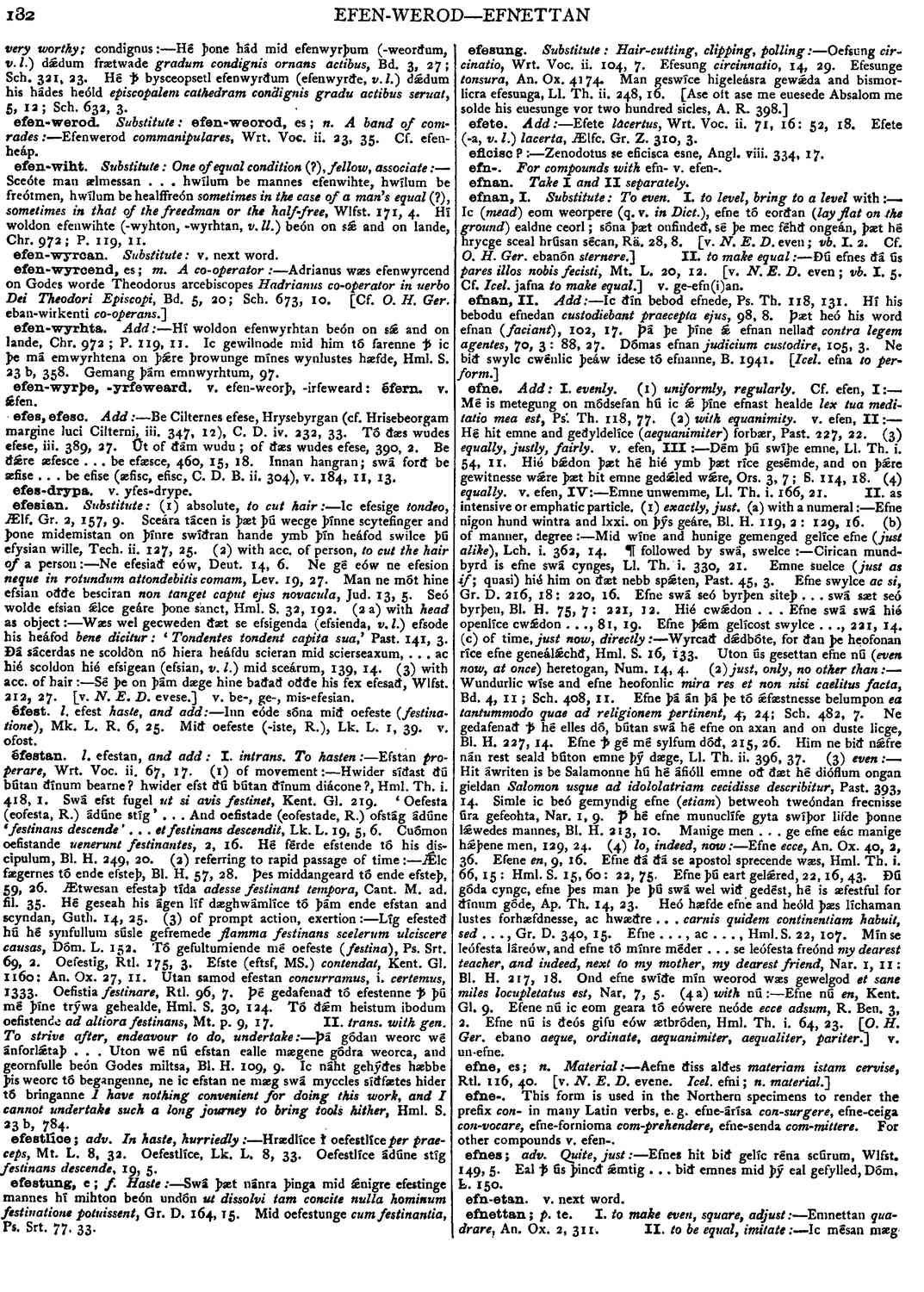éfestan
- verb
-
Efstan
properare,
- Wrt. Voc. ii. 67, 17.
-
Hwider síðast ðú bútan ðínum bearne? hwider efst ðú bútan ðínum diácone?,
- Hml. Th. i. 418, 1.
-
Swá efst fugel ut si avis festinet, Kent. Gl. 219. 'Oefesta (eofesta, R.) ádúne stíg' . . . And oefistade (eofestade, R.) ofstág ádúne
'festinans descende'. . . et festinans descendit,
- Lk. L. 19, 5, 6.
-
Cuómon oefistande
uenerunt festinantes,
- 2, 16.
-
Hé férde efstende tó his discipulum,
- Bl. H. 249, 20.
-
Ǽlc fægernes tó ende efsteþ,
- Bl. H. 57, 28.
-
Þes middangeard tó ende efsteþ,
- 59, 26.
-
Ætwesan efestaþ tída
adesse festinant tempora,
- Cant. M. ad. fil. 35.
-
Hé geseah his ágen líf dæghwámlíce tó þám ende efstan and scyndan,
- Guth. 14, 25.
-
Líg efesteð hú hé synfullum súsle gefremede
flamma festinans scelerum ulciscere causas,
- Dóm. L. 152.
-
Tó gefultumiende mé oefeste (
festina
),- Ps. Srt. 69, 2.
-
Oefestig,
- Rtl. 175, 3.
-
Efste (eftsf, MS.)
contendat,
- Kent. Gl. 1160: An. Ox. 27, 11.
-
Utan samod efestan
concurramus, i. certemus,
1333. -
Oefistia
festinare,
- Rtl. 96, 7.
-
Þé gedafenað tó efestenne ꝥ þú mé þíne trýwa gehealde,
- Hml. S. 30, 124.
-
Tó ðǽm heistum ibodum oefistende
ad altiora festinans,
- Mt. p. 9, 17.
-
Þá gódan weorc wé ánforlátaþ . . . Uton wé nú efstan ealle mægene gódra weorca, and geornfulle beón Godes miltsa,
- Bl. H. 109, 9.
-
Ic náht gehýðes hæbbe þis weorc tó begangenne, ne ic efstan ne mæg swá myccles síðfætes hider tó bringanne
I have nothing convenient for doing this work, and I cannot undertake such a long journey to bring tools hither,
- Hml. S. 23 b, 784.
Bosworth, Joseph. “éfestan.” In An Anglo-Saxon Dictionary Online, edited by Thomas Northcote Toller, Christ Sean, and Ondřej Tichy. Prague: Faculty of Arts, Charles University, 2014. https://bosworthtoller.com/43814.
Checked: 0